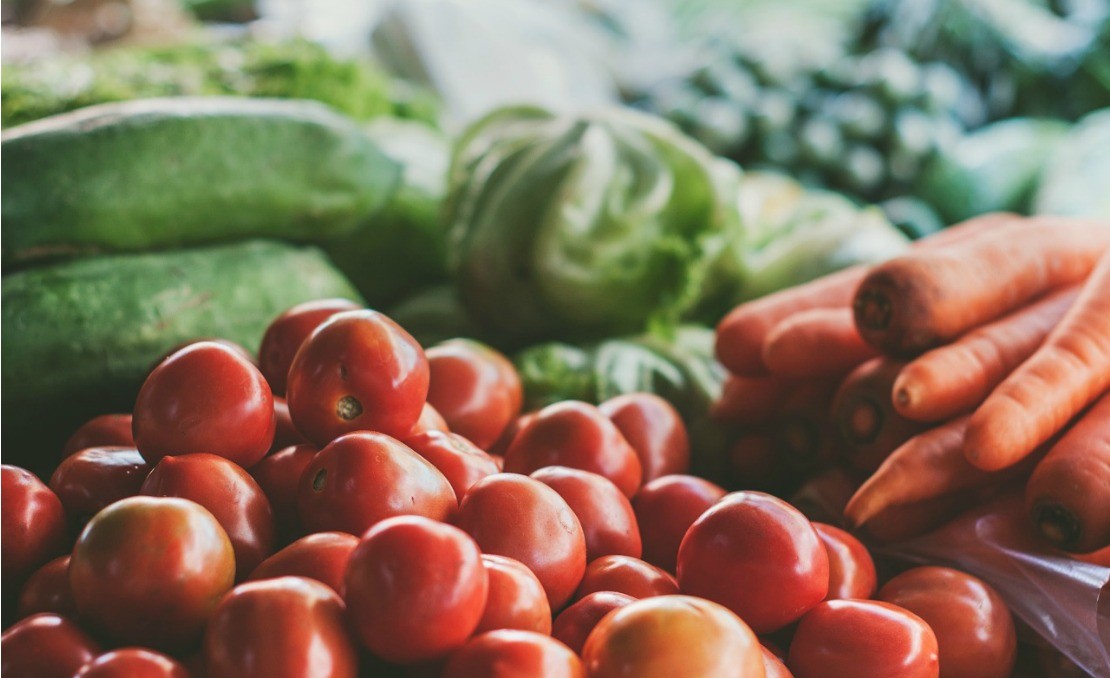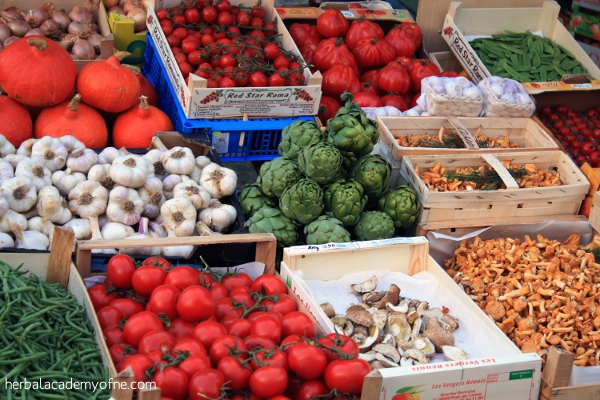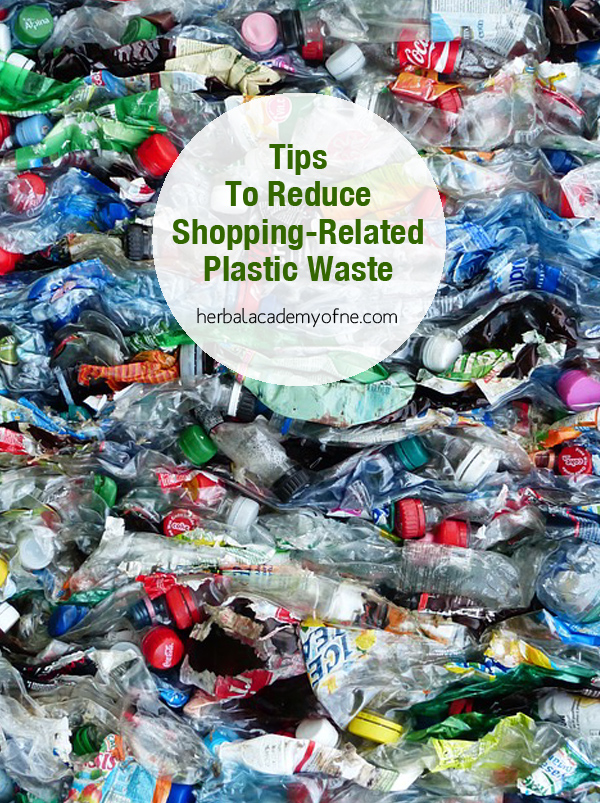
Tips to Reduce Shopping-Related Plastic Waste
According to statistics, in 2012, the United States produced a staggering 32 million tons of plastic waste and only recycled a mere 9 percent of that (EPA, 2014). This non-degradable plastic not only takes up lots of space in our landfills, but both large and small pieces of plastic waste find their way to our oceans and landscapes, causing harm to wildlife. With such a huge amount of waste being produced, here are three easy and money-saving ways to reduce plastic consumption and waste—helping the planet and its inhabitants.
Minimize Your Package Purchases
The first step to reducing the amount of plastic in your life is simply to consume less.
Water and other beverage bottles are a major blight on our planet. Don’t buy single serve items! If you must purchase bottled beverages, go for the largest size: one gallon of water contains approximately 7-10 individual bottles. But instead of buying bottled beverages in the first place, get yourself a cool, BPA-free plastic or stainless steel water bottle and reuse, reuse, reuse! Recycling plastic and glass bottles is great, but still requires a lot of energy and resources.
Be aware of wasteful package sizes (one small item in extraneous packing) and when possible, buy in bulk. Purchasing staple foods in bulk is an effective way to save money and reduce the amount of plastic, cardboard, and cans in your shopping cart. This is especially true for dry goods such as nuts, rice, beans, granola, etc. For example, one 15 ounce can of beans yields approximately 1 and ½ cups cooked beans (drained), while a one pound bag will give you 6 cups of cooked beans—that’s four times the amount at a fraction of the packaging and cost.

If you are not keen on pre-packaged options, try “self-serve” bulk buying. Many stores let shoppers measure out and fill up a reusable container with items such as nuts, beans, seeds, and more. Bulk buying is a good way to stock up, requiring fewer trips to the store, reducing travel-, production-, and shipping-related pollution.
Reusable Shopping Bags: An Easy Option
An easy and popular way to cut down on plastic is to use eco-friendly reusable shopping bags or totes. Not only are these better for the environment—reducing the amount of bags in landfills, the ocean—they are extremely practical and can hold at least twice the amount of items as a standard plastic bag. Plus, they are easier to carry—no more cheap plastic handles cutting into your skin—as well as load/unload.
Totes are generally made from recycled plastic, cotton, hemp, or canvas. Most businesses sell them at a minimal cost or give them away as an incentive. Plus, many stores give shoppers a small credit for bringing your own bags. If you don’t have totes, you can even reuse or recycle the store’s own plastic bags. (Individual options vary; check with your local store.)
Try leaving a few bags in your car or near your front door so you always have them available. And remember, these are not just for groceries; reusable bags are perfect for running all types of errands. And, the small size ones make great lunch bags you can use over and over!
Take reuse to the next step with reusable produce bags. Generally, made of a washable mesh net, they eliminate the need for all of those plastic produce bags that often get tossed. Just pop your produce in, subtract the minor tare weight, and you are good to go.
Reduce Produce-Related Waste
The single most effective way to have a zero-waste produce practice is to grow your own! A small raised bed in your yard or even patio containers can boast basics from tomatoes, cucumbers and lettuce to peppers, eggplant, and cauliflower. Walk outside, pick it, and eat it. No packaging and you can’t get any fresher!
If you don’t have a place to plant, look into a local farm share. As people become more health conscious, community supported agriculture (CSA) is thriving. Not only will you save money, but you significantly reduce waste as your fresh fruits and veggies will be packaged in a reusable box or bag that you return on your next pick up. Some farms ask that you bring your own bags to transport your goods so be sure to check.

CSAs are an amazing ways to support local farms and get more fresh produce on your plate. No access to a farm share? Visit a local farmers market where most items can be purchased loose and placed into a reusable bag. Plus, staying local reduces transportation-related costs and pollution. For information on CSAs in Massachusetts, visit Massachusetts Department of Agricultural Resources.
Every one of us can play a significant role in reducing the amount of plastic we consume and increasing the amount that we reuse and recycle. Try incorporating at least one of these new practices into your next shopping trip. And, post a comment letting us know what tips you use to reduce packaging waste!
Resources and Information
Plastic Pollution Coalition – website
My Plastic-Free Life – blog
Plastic-Free: How I Kicked the Plastic Habit and How You Can Too, book by Beth Terry
The Plastic Sea – article
This post is written by Melissa Salce. Melissa is a writer, editor, and crafter with more than 15 years of professional writing experience. Passionate about animal rights and the planet, she launched Don’t Worry, Be Earthy as a way to help others help the world. Her work has appeared in Interior Design magazine, Shore Line Times newspaper, and various newsletters and trade publications.
REFERENCES
The United States Environmental Protection Agency. Common Wastes & Materials: Plastics. Retrieved from www.epa.gov/osw/conserve/materials/plastics.htm.
Huffstetler, E. Dried Bean Measurements and Conversions [Blog post]. Retrieved May 5, 2014, from frugalliving.about.com.
Ouyia, Y. (2014, January, 7). 4 Ways To Reduce Waste When Shopping, [Blog post]. Retrieved from www.huffingtonpost.com.








